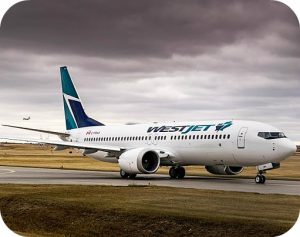 On Sunday Ethiopian Airlines Flight 302 crashed shortly after take off, killing all 157 people on board. Although the cause of this tragedy will be under investigation for some time, many in the aviation industry were quick to blame the disaster on the model of aircraft used for the flight: the Boeing 737 Max 8. After all, this marks the second time within five months that this type of jetliner has crashed soon after taking off. In October a Lion Air flight went down in Indonesia under similar circumstances and killed all 189 passengers on board. While that crash remains under investigation as well, authorities believe faulty software in the Max 8 is partly to blame.
On Sunday Ethiopian Airlines Flight 302 crashed shortly after take off, killing all 157 people on board. Although the cause of this tragedy will be under investigation for some time, many in the aviation industry were quick to blame the disaster on the model of aircraft used for the flight: the Boeing 737 Max 8. After all, this marks the second time within five months that this type of jetliner has crashed soon after taking off. In October a Lion Air flight went down in Indonesia under similar circumstances and killed all 189 passengers on board. While that crash remains under investigation as well, authorities believe faulty software in the Max 8 is partly to blame.
Given the similarities between the two disasters, many aviation companies and regulators around the globe quickly lost their trust in Boeing’s latest jetliner. On Monday at least 20 air carriers in China and Indonesia grounded all 737 Max 8 planes after their respective governments placed bans on the aircraft. Then on Tuesday Great Britain became the first European country to ban the use of the plane. All told, more than 140 Max 8 planes have been pulled from service, amounting to about 40 percent of the aircraft’s total fleet. Trade groups and unions have also raised their concerns about the Max 8. “We need help from the regulators when the entire world is looking at two catastrophic incidents that happened on the same aircraft type within five months of each other,” said Sara Nelson, president of the Association of Flight Attendants. “Our system is so safe that these things don’t happen today. That is why people are questioning what is going on here.”
Still, the Federal Aviation Administration (FAA) has not banned the plane in the U.S. and urges people to wait until the investigation is done before jumping to any conclusions. If it turns out the Max 8 is to blame, though, it could have an enormous effect on Boeing’s bottom line. Not only did the aviation giant’s stock plummet 5 percent after the Ethiopia crash, but also insiders estimate that the Max 8 accounts for two-thirds of future deliveries and 40 percent of profits. But even if Boeing is eventually cleared of all blame by investigators, consumers might not be so easy to convince. For instance, a woman named Alicia Winnett and her husband tried to switch to a later Air Canada flight when they learned they would soon be boarding a Max 8. When they couldn’t get make the switch, the couple simply stayed on the ground. “I just cannot sit on a Boeing 737 Max 8 with confidence,” said Winnett.
Questions:
- Do you think the U.S. should follow the lead of countries like China and Great Britain and ground all Boeing 737 Max 8 planes? Why or why not?
- Do you think these two tragic plane crashes will have a long term impact on Boeing’s reputation among consumers? Why or why not?
Source: David Gelles, Natalie Kitroeff and Hadra Ahmed, “Boeing Scrambles to Contain Fallout From Deadly Ethiopia Crash,” The New York Times, March 11, 2019. Photo by Acefitt.
